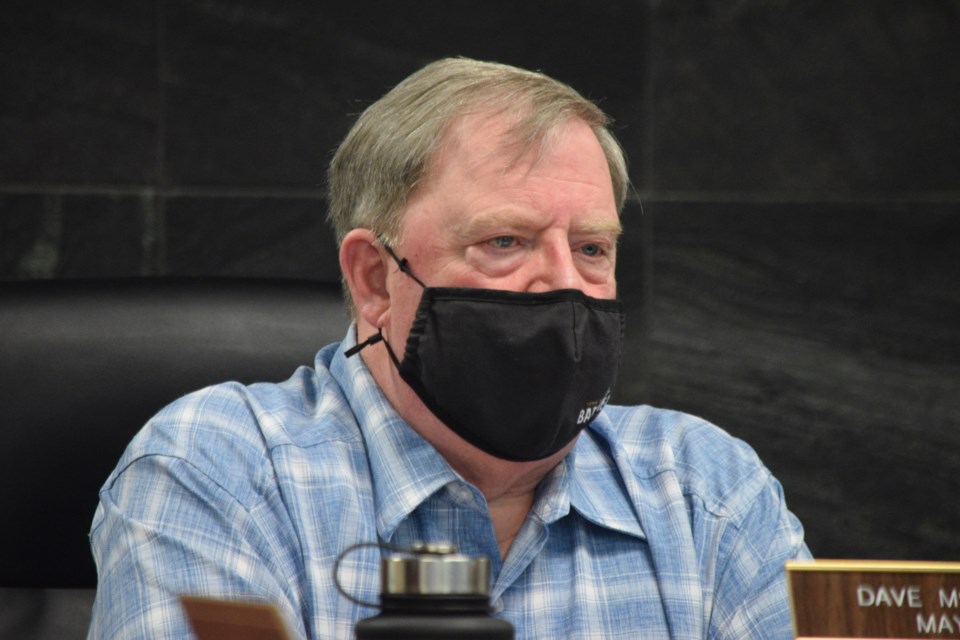BARRHEAD – It is a step in the right direction.
That is how County of Barrhead Coun. Walter Preugschas and Town of Barrhead mayor Dave McKenzie characterized the province's new Rural Education Supplement and Integrated Doctor Experience (RESIDE) program.
The program gives new doctors who have recently completed or are close to finishing their residency training with financial incentives to practice for a minimum of three years in selected rural Alberta communities in need of family doctors.
McKenzie and Preugschas, who are both members of the community's medical professional attraction and retention committee (ARC) believe Barrhead certainly fits the bill.
"It is a difficult situation, and I was glad to see Barrhead was on the list," Preugschas said.
Over the last few years, several physicians have left the community, leaving Barrhead with perilously few doctors.
Between 2018 and 2020, five doctors left the community — two specialists, one in anaesthesia and one in obstetrics and three general practitioners (GP). Two more doctors have left the community in recent months, one in November and one at the end of January.
In December, at a chamber of commerce meeting, Barrhead's medical director Dr. Kent Bernes said the community would only have five family physicians. According to Alberta Health Services (AHS) assessments, Barrhead should have 10 family physicians.
Bernes added that he has high hopes that a pair of doctors, a husband and wife from Nigeria, will be coming to Barrhead but said it would be some time before that happens as they must complete a lengthy assessment with the College of Physicians and Surgeons.
Because of the shortage of local doctors, he said residents could expect to see "service disruptions as AHS calls them" at the Barrhead Healthcare Centre, especially in the ER.
Since the end of November, Barrhead's ER has seen several temporary closures, the latest being 12 hours spanning Jan. 25 and 26.
Preugschas said the ARC is working with Rural Health Professions Action Plan (RhPAP) to attract physicians to the community.
The province established RhPAP in 1991 to address the shortage of medical professionals in rural communities.
Recently, he said the committee created a two-page brochure, providing prospective doctors with general information about the community and extolling its virtues.
"It's a lot better than the little blurb (AHS) provides about the communities," he said.
Preugschas added that it is a tough sell as doctors coming into the province have a lot of choices. In the last month, AHS announced three doctors would be joining practices in Mayerthorpe, Whitecourt and Westlock.
As of Feb. 3, AHS is advertising for 375 vacancies. Seven positions in Barrhead are open, including three GPs, a GP with anaesthetics, a general surgeon, an obstetrics and gynaecology specialist and a long-term visiting adult psychologist.
Preugschas said making things more difficult is that despite it being discouraged by AHS, many communities are offering incentive packages such as one-year vehicle leases or large interest-free loans.
He said he was talking to a councillor in Kneehill County who told him that in order to solve their doctor shortage, they and the Town of Three Hills, Acme, Carbon, Linden, and Trochu created a comprehensive incentive package, including a financial grant paid over three years. But perhaps, the most attractive part of the package, Preugschas said, was that they provided the doctors with office space at a very attractive price.
"They were able to go from just having one or two doctors to nine or 10 in just a few years," he said.
However, he said, for the communities in the RESIDE program, it helps level the playing field.
It’s not just about the incentive package a community can provide though.
"It is about helping them and their families integrate into a community," Preugschas said.
McKenzie said he was pleased to learn that Barrhead had made the initial list of 15 communities for the RESIDE program. He said ARC has been discussing the possibility of creating some sort of financial package similar to the one provided by RESIDE, focusing on grants that doctors could put toward their student loans.
"(ARC) has interviewed a lot of doctors and asked them what would best help them when starting in a new community," McKenzie said. "(They told us) that after all the years of training, they are carrying a pretty hefty student loan and if we could help pay them down a bit …. they would stay in the community for X number of years."
He also agreed with Preugschas in that although RESIDE may help communities like Barrhead that might not have the resources to compete with communities that can provide hefty benefit packages, committees like ARC can still have a lot of influence on swaying a doctor in choosing one community over another.
"We can do a lot of things to tailor a specific program to meet the needs of an incoming doctor and their family that does not take a lot of money," he said. "They all come with a variety of personal situations, and if we can come up with a program to help them make the transition from wherever they are coming from to Barrhead, in whatever way they may need assistance. It is about getting creative, helping them find those connections that make assimilating into the community easier."



